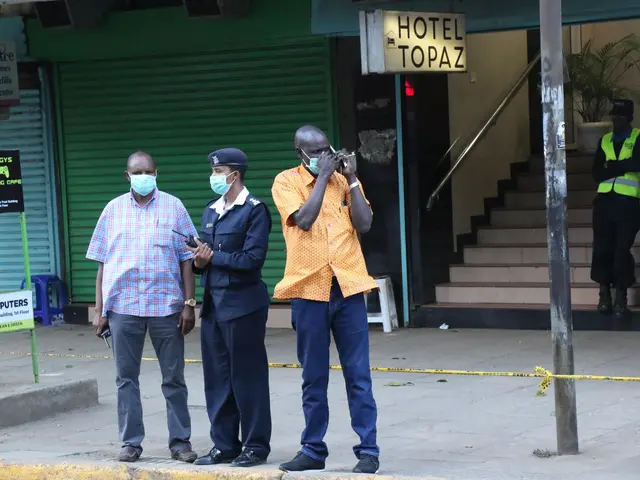Edward Muriithi was in high spirits on Friday morning as mask-wearing clients surrounded his pick-up truck to sample chickens that he put on display for sale in Kenya's capital Nairobi.
The middle-aged father of three, who for many years operated a taxi business in the low-income Nairobi's eastern suburbs, is also a proud owner of a chicken farm on the outskirts of the capital, which has provided him a new lifeline amid disruptions linked to COVID-19 pandemic.
Muriithi suspended his taxi business in mid-April after it proved unsustainable against a backdrop of stay at home orders, curfews and partial lockdowns implemented by the government to avert an implosion of the viral respiratory disease in the country.
"The taxi business took a turn for the worse when curfews and restricted movements became a reality in the middle of April and I had no option but to focus on an alternative venture that would feed my family," said Muriithi.
He symbolizes the growing ranks of Kenyan entrepreneurs whose resilience and ingenuity are currently on display as they navigate a treacherous business environment made worse by uncertainties triggered by the COVID-19 pandemic.
Muriithi found a soft landing in chicken business when a random survey in his neighborhood revealed the birds are a popular delicacy among Kenyans wary of red meat because of its connection to lifestyle diseases.
"I was surprised when the demand skyrocketed and I was forced to source for the chickens from relatives and friends who rear them in rural villages near Nairobi," said Muriithi.
He said that what he initially thought was an ordinary side hustle has turned out to be a goldmine in this COVID-19 era when many businesses have closed due to diminished purchasing power among Kenyans.
"So far I have sold more than 50 chickens to households and some hotels that are still operating in wealthier neighborhoods. An average chicken capable of producing 2 kilograms of meat has been retailing at 700 shillings (about 7 U.S. dollars)," said Muriithi.
He vowed to realign his future investment plans and ensure they are capable of withstanding shocks that could be triggered by a pandemic and changing consumer patterns.
Kenyan small business owners, often described as the embodiment of hard work, grit and fortitude, have defied the downturn occasioned by COVID-19 pandemic to stay afloat.
Andrew Osoro, a finance major and a part-time marketer said that he does not regret the decision to invest in a start-up that provide cybersecurity solutions to small and medium-sized enterprises.
The savvy entrepreneur in his early 30s said that COVID-19 pandemic took a heavy toll on his day job as a marketer but has not been knocked down completely thanks to the side hustle of selling digital security solutions.
"My employer embarked on downsizing when the pandemic forced some of our clients to cancel contracts but I was lucky to be spared the ax though I have to contend with reduced commissions," said Osoro.
Nevertheless, my side business of providing cybersecurity solutions to small scale enterprises that I co-own with a childhood friend has provided an alternative source of income in this turbulent season," he added.
Kenyan entrepreneurs found themselves in uncharted waters when the COVID-19 pandemic upended their well-laid plans and pushed them to the edge of bankruptcy thanks to lost business opportunities.
Peter Mullei, a 37-year-old father of two who owns a barbershop in a working-class suburb east of the capital Nairobi, said reduced business activities in the wake of the pandemic forced him to devise innovative ways to earn a living.
The barber who has practiced that trade for more than a decade has stocked disinfectants and stylish masks in his business premises to provide him an extra penny as the number of clients looking for a haircut reduce substantially due to concerns about COVID-19 transmission.
"It has been a difficult season for some of us who have invested in barbershops and salons that were negatively affected by social distancing requirements from the government, "said Mullei.
"Luckily, a friend of mine floated to me the idea of selling masks and sanitizers as a fallback to reduced revenue from trimming people's hair. I am now able to meet household obligations without too much struggle," he added.
 简体中文
简体中文




